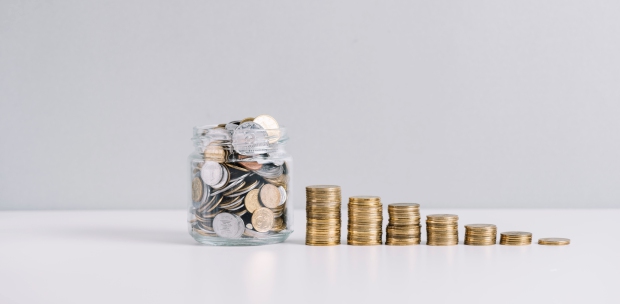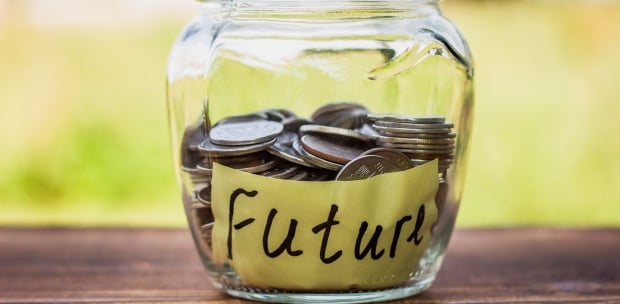SQUIRRELING away cash today and putting it to work to grow tomorrow are activities with different purposes. It's obvious which should come first, but why?
All of us should save money. Most of us should also invest some of our money.
There are numerical and qualitative differences between "all" and "most". So, who doesn't need to invest? My answer, which I'll get to soon, is morbid.
Before I share it, we should think about why anyone invests. At its crux, the act of investing is to grow our money faster than inflation and taxes erode its purchasing or buying power.
There is never 100 per cent certainty of success with investing because the very act carries with it the inherent risk of failure, although the odds of success rise dramatically when we, metaphorically, refuse to put all our eggs in one basket.
It's wise to spread our investments across different asset classes and geographic regions, and to also keep investing — especially through bad times to lock in lower-than-normal purchase prices — over many years or, better yet, several decades.
My morbid answer, then, to the earlier question on who doesn't need to invest, is the relatively small group of people who are likely to die quite soon. As only God knows when our time is up, it is statistically smart — based on the law of large numbers — for most of us to invest carefully, methodically and ceaselessly.
Savings, on the other hand, serve different purposes than investments.
SAVINGS AND STRATEGIES
We save for emergencies and also to build internal resilience against what Shakespeare described in Hamlet, Act 3, Scene 1, as "the slings and arrows of outrageous fortune" — unexpected tough times and extreme exigencies.
Possessing a sizeable store of savings helps us face financial stress, which is both logical and obvious. But such a storm-cellared store of saved cash in a secure repository like a bank savings account or a series of fixed deposit accounts or a pure money market fund also bolsters our finances and, more importantly, stabilises our emotions.
When we begin our respective financial journeys, we should always start by saving money. Only later should most of us begin investing cautiously as we incrementally learn about different types of investments and test out various investment strategies.
The road to investment maturity is long, winding, undulating and littered with speed bumps and potholes. Over a lifetime of saving and investing, most savvy individuals end up investing more than they save.
But no one can readily ride the sometimes terrifying ups and downs of the capital market comprising both the ownership (stock) market and the so-called loanership (bond) market without possessing both cash reserves to handle emergencies and additional savings that act as emotion-stabilisers when investments plummet, as they sometimes do.
Here's my advice: always, always, always exercise prudence, wisdom and caution by saving money first before opting to invest a portion of it.
Warren Edward Buffett is, in my opinion, the greatest living investor. He's also one of Earth's wealthiest people. Buffett wrote: "Don't save what is left after spending; spend what is left after saving."
If it's good enough for Buffett, it's great advice for you and me.
BENEFITS OF SAVINGS
I teach my clients and seminar audiences that all of us must have at least one layer of cash savings, and most of us should build a second layer for a different hybrid purpose.
First, everyone should begin the process of building an adequate, yet not too large, emergency buffer fund (EBF) within designated bank accounts and possibly also money market funds.
Second, even if you are part of the majority that would benefit from attempting to grow the purchasing power of your precious money at a compounded annualised growth rate (or CAGR) that is higher than the combined drag of inflation and taxes, I recommend constructing such a diversified savings and investment portfolio with a pile of cash that is different from your EBF.
So, to recap:
1. The purpose of our EBF, which should be large enough to cover three to six months of normal expenses if we are conventionally employed, or six to 12 months of expenses if we're self-employed and thus in business for ourselves, is to empower us to meet the financial requirements of emergencies — like an accident, loss of employment or uninsured medical procedure — without needing to dip into volatile investments or, worse yet, resort to adding more debt to our lives; and
2. To grow wealthier in real economic terms, we should build up a diversified portfolio that may include asset classes like fixed income, equities, investment real estate and alternative investments (like commodities and foreign currencies), but that also has within the portfolio cash, as an essential asset class.
I recommend keeping EBF cash savings and portfolio cash components separate for ease of management and ready segmentation. That way we'll always know which pile of cash is allocated for what purpose.
Finally, how do we generate the essential cash surpluses needed for savings?
Answer: Spend less than we earn, save and invest the difference, and do so for a long, long time.
The benefits of doing so are myriad. The penalties of not doing so are grim.
Be wise: Save money.
© 2022 Rajen Devadason
Rajen Devadason, CFP, is a Licensed Financial Planner, professional speaker and author. Read his free articles at www.FreeCoolArticles.com; he may be connected with on LinkedIn at www.linkedin.com/in/rajendevadason, or via [email protected]. You may also follow him on Twitter @Rajen Devadason and on YouTube (Rajen Devadason).





